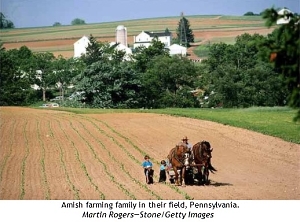.
S
i t e S e a r c h
A_B_C_D_E_F_G_H_I_J_K_L_M_N_O_P_Q_R_S_T_U_V_W_XYZ
List
of Topics__Ask
Suby__Free
Stuff__Questions
Lists
Terms
of Use__________________Privacy
Policy
Interlinked
Dictionary© based on
Merriam-Webster's
Collegiate® Dictionary (m-w.com)
and Star
Dictionary
Use the BACK
button on your browser to return
Aldous Leonard Huxley,
1894-1963. British writer
his best-known work, Brave
New World (1932), paints a grim picture of a cabal
organized utopia as shown in this quote
Idi Dada Oumee Amin,
born circa 1925. Ugandan dictator
(1971-1979) whose brutal and repressive.regime
ended when he fled the country after
being deposed in a coup
d'état; Uganda is a country of east central Africa
apnea.also.apnoea.noun,.plural.apneas
temporary absence or cessation
of breathing; never consent for your loved ones to get what they
call an apnea test, which is not a test
at all, but a procedure, just
like the covid con PCR test,
which is also not a test, but called a test to hide the criminal procedure
- here's why and how they do it in order to take advantage of you https://youtu.be/5IRQtONl2fs
apneic.adjective
apneic.noun,.plural.apneics
awning.noun,.plural.awnings
a rooflike structure, often
made of canvas or plastic, that serves as a shelter, as over a storefront,
window, door or deck
autopsy.noun,.plural.autopsies
examination of a cadaver
to determine or confirm
the cause of death; an assessment
or examination after the fact; also called necropsy, postmortem, postmortem
examination; from Greek
'autopsia' meaning 'a seeing for oneself', comprised with 'auto-' meaning
'self' + 'opsis' meaning 'sight'
autopsic
or autopsical.adjective
autopsist.noun,.plural.autopsists
those who do autopsies
ago.adverb
before the present (used
with a measurement of time)
ago.adjective
gone by; past (it was two
years ago we had a vacation); in the past (the cabal
has gotten worse over time, but their plans have been ongoing for millennia
of time); when the word 'ago' is followed by a clause,
the clause should be introduced by the word 'that' rather
than the word 'since', such as
in the sentence 'it was
sixty years ago that I left this place', not, 'it was sixty years ago since
I left this place')
ahold.noun
a grip onto;
ahold onto (can you please grab ahold of the other end of this table so
we can move it over here? she took ahold of the old lady's arm to assist
her in walking over the gravel road); if you get ahold of someone or something,
you manage to contact or find them
get ahold.phrasal
verb
if you get ahold of someone or something, you
have contacted them or it (after searching the Internet to find her, I
finally got ahold of her email)
army.noun,.plural.armies
a large group
of people organized and trained
to protect good people from criminals
of any kind, such as tyrants.like
these
airship.noun,.plural.airships
a self-propelled lighter than air craft with directional
control surfaces; also called dirigible
abdicate, abdicated,
abdicating,
abdicates.verbs
transitive
verb use.to
relinquish
power or responsibility
intransitive
verb use.to
relinquish a high office or responsibility; from Latin 'abdcre' and 'abdct'
meaning 'to disclaim', where
'ab' means 'away' and 'dcre' means 'to proclaim'
abdicable.adjective
abdication.noun,.plural.abdications
abdicator.noun,.plural.abdicators
antihistamine.noun,.plural.antihistamines
the word 'antihistamine'
comes from the Greek 'antihistemi' meaning 'to resist' as used in James
4:7; a pharmaceutical.concoction
that tinkers with one's natural
immune system in attempting
to counteract the physiological
effects of histamine production
from allergic.reactions
and colds (counteracting is not curing, it's only a submerging of symptoms)
antihistaminic.adjective
ablation.noun,.plural.ablations
the loss of solid material by melting or evaporation
(when the Sun comes out the ice will ablate); the erosion
of rock by wind action, such as in a sandstorm;
in the cut, burn and poison society
an ablation is the surgical removal
of body tissue
ablator.noun,.plural.ablators
ablate.verb
to wear
away through erosion or vaporization;
to carry away; to remove an organ
or a bodily structure (criminal medical procedures and poisonous pharmaceutical
drugs ablate fetuses and new
borns for evil purposes {*})
ablative.adjective
capable
of or susceptible to ablation
(the ablative nose cone of a rocket)
ablatively.adverb
Grammar: in English
grammar,
the word ablative is an adjective denoting
a case indicating an agent,
instrument or source, expressed by the words 'by', 'with' or 'from'
ablative.noun,.plural.ablatives
a grammatical word in the ablative case
afterward.noun,.plural.afterwards
at a later time; subsequently
afterword.noun,.plural.afterwords
see epilog
anacoluthon.noun,.plural.acoluthons.or.anacolutha
(pronounced 'ana kuh low thon')
Grammar: an abrupt
change within a sentence
to a second construction.inconsistent
with the first, sometimes used for rhetorical.effect,
for example, 'I warned him that if he continues to drive like that, what
could be the end result?
anacoluthic.adjective
anagram.noun,.plural.anagrams
word is from Latin,
date 1585-95 A.D.; an anagram is a word or
phrase
formed by reordering the letters of another word or phrase, such as satin
to stain or Santa to Satan; a game whose object is to form words from a
group of randomly picked letters,
as in the popular played game.Scrabble.(how
many words can you make out of the word 'heritage'?
apparently there are about 20, here's 3, 'her', 'tag', 'right')
anagrammatic.adjective
anagrammatically.adverb
anagrammatize.verb
to read letters out of order to discover a hidden
meaning
to transpose
into an anagram
anagrammatist.noun,.plural.anagrammatists
one who makes anagrams
abbot.noun,.plural.abbots
the superior
of a monastery; from Middle
English 'abbod' and from Old
English and Late Latin 'abbas'
and 'abbat' and from Greek
'abba' and before that from Aramaic
'abba' meaning 'father'
apocalypse.noun,.plural.apocalypses
uncovering; a revealing; see also armageddon
apocalyptic.also.apocalyptical.adjective
of.or.relating.to.an
apocalypse; involving or portending
widespread devastation or
ultimate.doom;
a disastrous.outcome
apocalyptically.adverb
Aikido.proper
noun
a Japanese art of self-defense that employs holds
and locks and that uses the principles of nonresistance in order to debilitate
the strength of the opponent
Amish.proper
noun
a wonderfully innovative
and helpful Christian group in
North America, primarily the Old Order Amish Mennonite
Church. Look what they did to help those needing a home after the Hurricane
in North Carolina! 
The Amish got going in the late
 17th
century among followers of Jakob Ammann circa
1644–1730. Amish communities sprang up in Switzerland, Alsace, Germany,
Russia and Holland, but emigration
to North America in the 19th and 20th centuries and assimilation
with Mennonite groups gradually
eliminated the Amish in Europe. They first settled in eastern Pennsylvania,
where a large settlement remains. In the early 21st century there were
about 250,000 Amish living in more than 200 Old Order Amish settlements
in the United States and Canada. The largest were located in Pennsylvania,
Ohio, Indiana, Iowa, Illinois and Kansas, Wisconsin, Maine, Missouri and
Minnesota. The Amish meet in each other's homes and barns. There are no
church buildings as they know the 'church' is not
a building.
Humility, family, community
and staying away from the madness of many societies are the mainstays
of the Amish. The Amish differ little from the Mennonites. Both are believers
in
God, the Holy Spirit and Christ. 17th
century among followers of Jakob Ammann circa
1644–1730. Amish communities sprang up in Switzerland, Alsace, Germany,
Russia and Holland, but emigration
to North America in the 19th and 20th centuries and assimilation
with Mennonite groups gradually
eliminated the Amish in Europe. They first settled in eastern Pennsylvania,
where a large settlement remains. In the early 21st century there were
about 250,000 Amish living in more than 200 Old Order Amish settlements
in the United States and Canada. The largest were located in Pennsylvania,
Ohio, Indiana, Iowa, Illinois and Kansas, Wisconsin, Maine, Missouri and
Minnesota. The Amish meet in each other's homes and barns. There are no
church buildings as they know the 'church' is not
a building.
Humility, family, community
and staying away from the madness of many societies are the mainstays
of the Amish. The Amish differ little from the Mennonites. Both are believers
in
God, the Holy Spirit and Christ.
The national newspaper serving the
many Amish and Mennonite communities is published in Sugarcreek, Ohio.
The Amish are considered excellent farmers, growing and storing the majority
of their food and purchasing only staples
in stores.
Singing is important to Amish life,
whether at work or at play, at home or in church.
Amish quilts, meticulously stitched
by groups of Amish girls and women, are popular with tourists and highly
praised by collectors. The quilting bees are a form of socialization and
relaxation for Amish women and the group effort reflects the Amish virtues
of community and cooperation. The quilts are usually intricate in design
with colourful patterns. The selling of quilts, handmade crafts such as
hex signs, and their famous baked goods such as friendship bread and shoofly
pie is a common source of income for Amish families. The Amish recipes
of Elizabeth Coblenz (died 2002) were syndicated in hundreds of newspapers
and her cookbooks are internationally famous.
Amish children typically attend
one room schools run by the community and they attend school only through
the eighth grade. Instruction is in English and concentrates on the basics
of reading, writing and math. Amish history and practical farming and homemaking
skills are also taught.
The quiet, reserved manner that
the Amish try to maintain does not prevent them from partaking of common
pastimes and games. Volleyball and softball are popular with many Amish
families, but they are played strictly for enjoyment and not in a spirit
of competition. Simple pleasing flower gardens adorn Amish properties.
Amish families will often read or sing together in the evenings.comprised
with Amish (2014), Encyclopædia Britannica Ultimate Reference Suite.
Appleseed, Johnny.proper
noun
his titular
name was Johnny Appleseed, real name was John Chapman, born September 26,
1774, Leominster, Massachusetts, passed on March 18?, 1845, near Fort Wayne,
Indiana, U.S.
He was a missionary.nurseryman
of the North American frontier
who helped prepare the way for 19th century pioneers by supplying apple
tree nursery seeds throughout the U.S. Middle West.
John Chapman/Johnny Appleseed
was a genuine and dedicated professional nurseryman who expected to make
a profit from the sale of some of his seedlings. Around 1800 he started
collecting apple seeds from apple cider presses in western Pennsylvania
and soon began his long trek westward, planting a series of apple nurseries
from Massachusetts through to central Ohio and beyond. He sold or gave
away thousands of seedlings to pioneers, whose acres of productive apple
orchards became a living memorial to Chapman's missionary zeal.
Johnny Appleseed, as he came
to be called, was a natural man with a cheerful, generous.nature
who loved the wilderness. He had a gentleness
with animals and devotion to the
Bible.
He had knowledge of medicinal herbs
and was in harmony with the Native
Americans from which he learned much. His appearance presented himself
with flowing hair under an upside down porridge
pan. His feet were without shoes and his pants ragged. A large old coffee
sack
was worn over his shoulders with holes cut out for arms.
John Chapman, owner of 1,200
acres of planted land, passed on from in 1845 at the age of 71, but the
legend
of Johnny Appleseed lives on in many books. An authentic biography
is Robert Price's, Johnny Appleseed: Man and Myth, 1954, reissued
1967. ....comprised
with information from Encyclopedia Britannica.
.
|